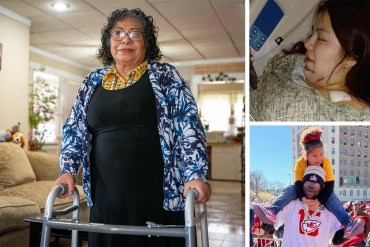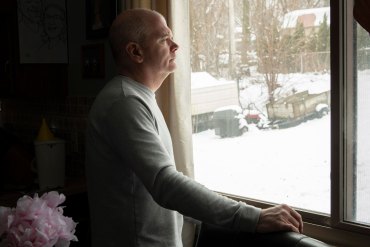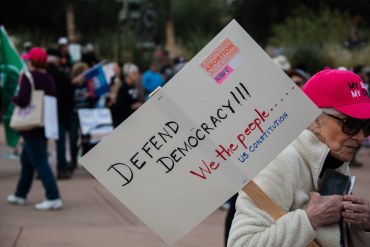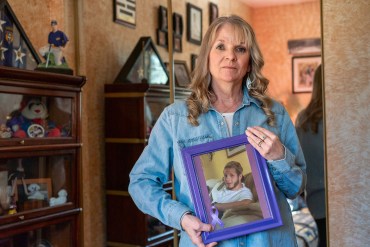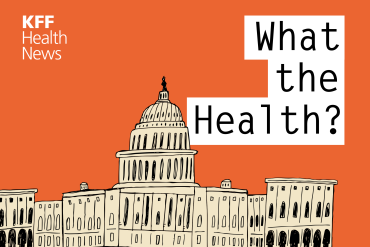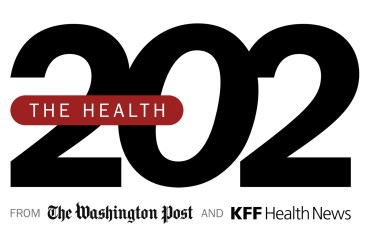Federal Panel Prescribes New Mental Health Strategy To Curb Maternal Deaths
The leading causes of pregnancy-related deaths in the United States — including suicides and fatalities linked to substance use disorders — stem from mental health conditions. Now a federal task force has recommended strategies to help women who are at risk during or after pregnancy.
FDA Said It Never Inspected Dental Lab That Made Controversial AGGA Device
Johns Dental Laboratories stopped making the Anterior Growth Guidance Appliance last year after a KFF Health News-CBS News investigation into allegations of patient harm. The company had “never” reported any complaints about its products to the FDA, according to the agency.
Democrats Seek To Make GOP Pay for Threats to Reproductive Rights
Democrats running for office are using abortion rollbacks to galvanize voters, with abortion rights ballot initiatives amplifying their lines of attack. In Missouri, the leading Democratic candidate for the Senate also blames Republican Sen. Josh Hawley for threatening access to IVF.
Their First Baby Came With Medical Debt. These Illinois Parents Won’t Have Another.
Millions of new parents in the U.S. are swamped by medical debt during and after pregnancy, forcing many to cut back on food, clothing, and other essentials.
Desaparecen protecciones pandémicas, pero permanece la licencia por enfermedad paga
Estados Unidos es uno de los nueve países que no garantizan licencia por enfermedad paga, según datos compilados por el World Policy Analysis Center.
Paid Sick Leave Sticks After Many Pandemic Protections Vanish
The U.S. is one of nine countries that do not guarantee paid sick leave. Since the covid pandemic, advocates in states including Missouri, Alaska, and Nebraska are organizing to take the issue to voters with ballot initiatives this November.
Three People Shot at Super Bowl Parade Grapple With Bullets Left in Their Bodies
Despite the rise of gun violence in America, few medical guidelines exist on removing bullets from survivors’ bodies. In the second installment of our series “The Injured,” we meet three people shot at the Kansas City Super Bowl parade who are dealing with the bullets inside them in different ways.
Millions Were Booted From Medicaid. The Insurers That Run It Gained Medicaid Revenue Anyway.
Big health insurers that have contracts with state Medicaid programs find themselves making more money even as enrollment in Medicaid programs has dropped. Here’s why.
Medical Providers Still Grappling With UnitedHealth Cyberattack: ‘More Devastating Than Covid’
Medical providers say they’re still coping with the Change Healthcare cyberattack disclosed in February even though parent company UnitedHealth Group reported that much is back to normal and its revenue is up over last year.
He Thinks His Wife Died in an Understaffed Hospital. Now He’s Trying to Change the Industry.
Nurses are telling lawmakers that there are not enough of them working in hospitals and that it risks patients’ lives. California and Oregon legally limit the number of patients under a nurse’s care. Other states trying to do the same were blocked by the hospital industry. Now patients’ relatives are joining the fight.
Medicare’s Push To Improve Chronic Care Attracts Businesses, but Not Many Doctors
Most Medicare enrollees have two or more chronic health conditions, making them eligible for a federal program that rewards physicians for doing more to manage their care. It shows promise in reducing costs. But not many doctors have joined.
Conservative Justices Stir Trouble for Republican Politicians on Abortion
Republicans are learning the admonition “be careful what you wish for,” as conservative judges cause them political problems over abortion in a crucial election year.
Swap Funds or Add Services? Use of Opioid Settlement Cash Sparks Strong Disagreements
The national opioid settlements don’t prohibit using money for initiatives already supported by other means, but doing so could dilute the impact.
What the Health? From KFF Health News: Arizona Turns Back the Clock on Abortion Access
A week after the Florida Supreme Court said the state could enforce an abortion ban passed in 2023, the Arizona Supreme Court ruled that state could enforce a near-total ban passed in 1864 — over a half-century before Arizona became a state. The move further scrambled the abortion issue for Republicans and posed an immediate quandary for former President Donald Trump, who has been seeking an elusive middle ground in the polarized debate. Alice Miranda Ollstein of Politico, Rachel Cohrs Zhang of Stat, and Rachel Roubein of The Washington Post join KFF Health News’ Julie Rovner to discuss these stories and more. Also this week, Rovner interviews KFF Health News’ Molly Castle Work, who reported and wrote the latest KFF Health News-NPR “Bill of the Month” feature, about an air-ambulance ride for an infant with RSV that his insurer deemed not medically necessary.
Congress Likely to Kick the Can on Covid-Era Telehealth Policies
With an end-of-year deadline and a presidential election approaching, payment rules that fueled rapid expansion of telehealth in the United States face a last-minute congressional decision.
End of Internet Subsidies for Low-Income Households Threatens Telehealth Access
A federal program that helped pay for more than 23 million low-income households’ internet access runs out of money soon. The end of the subsidy launched earlier in the pandemic could have profound impacts on health care access.
Hospitals Cash In on a Private Equity-Backed Trend: Concierge Physician Care
Hospitals are increasingly stretching a velvet rope, offering “concierge service” to an affluent clientele. Critics say the practice exacerbates primary care shortages.
For-Profit Companies Open Psychiatric Hospitals in Areas Clamoring for Care
State institutions and community hospitals have closed inpatient mental health units, often citing staffing and financial challenges. Now, for-profit companies are opening psychiatric hospitals to fill the void.
A State-Sanctioned Hospital Monopoly Raises Concerns
The Federal Trade Commission has long argued that competition makes the economy better. But some states have stopped the agency from blocking hospital mergers that create local or regional monopolies, and the results have been messy. Two dozen states have at some point passed controversial legislation waiving anti-monopoly laws, allowing rival hospitals to merge and replacing competition […]
The Burden of Getting Medical Care Can Exhaust Older Patients
It’s estimated that an older patient can spend three weeks of the year getting care — and that doesn’t count the time it takes to arrange appointments or deal with insurance companies.








